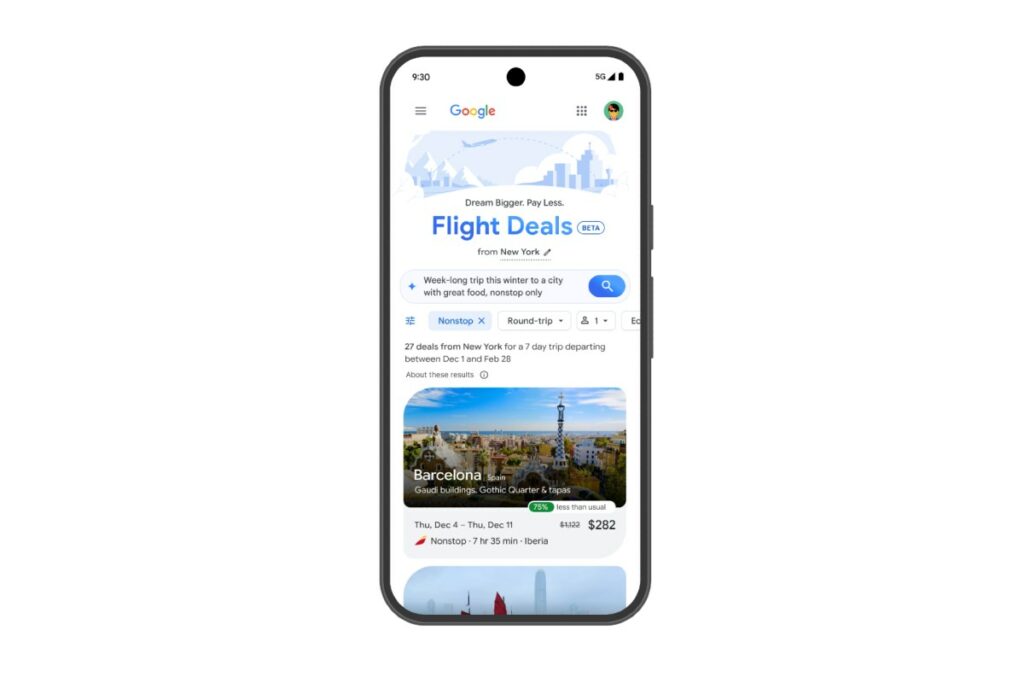Google on Thursday announced a new AI-powered search tool to help travelers find flight deals — even as regulators continue to question whether the search giant’s dominance in travel discovery stifles competition.
Called Flight Deals, the new tool is available within Google Flights and is designed to help “flexible travelers” find cheaper fares. Users can type natural language queries into a search bar — describing how and when they want to travel — and the AI surfaces matching options.
These queries can be like “week-long trip this winter to a city with great food, nonstop only” or “10-day ski trip to a world-class resort with fresh powder,” Google said in a blog post.
The tool uses its AI models to understand the nuances of what users are looking for and then goes through live Google Flights data to show relevant results, the company said.
Regulators, including the European Commission, are currently investigating how Google may be favoring its own search products — including Google Flights — in ways that harm competition. EU regulators are eyeing Google for enforcement under the Digital Markets Act, aiming to rein in the power of major tech platforms. In response, the Alphabet-owned unit is reportedly planning to propose changes to appease regulators, including the addition of a price-comparison box in search results.
Initially, Google has brought Flight Deals in beta, with plans to roll it out in the U.S., Canada, and India over the next week. The company said the goal of the beta release is “to gather feedback and explore how AI can improve travel planning.”
Google did not immediately respond to questions about which Gemini models power the tool, what data sources are used, or what privacy safeguards are in place.
The move is part of a broader experiment as Google looks to compete with OpenAI, Anthropic, Perplexity, and other major AI players by integrating generative AI into travel search.
Competitors like Booking.com, Expedia, and Indian travel aggregator MakeMyTrip have already rolled out their own AI integrations to streamline trip planning. In that sense, Google is arriving a bit late. But with its scale and reach, the company could still pose a serious challenge — if the tool proves effective and gains traction.
Nonetheless, the classic Google Flights interface will continue to exist. The original flight search tool, launched in 2011, is even getting an update with an option to exclude basic economy fares for trips within the U.S. and Canada.


